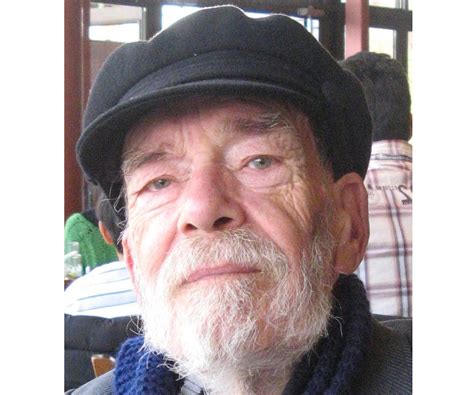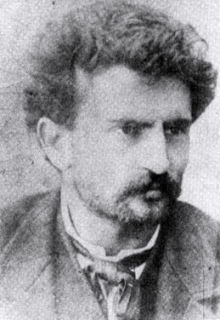Top 136 Anarchism Quotes & Sayings - Page 3
Explore popular Anarchism quotes.
Last updated on November 30, 2024.
Anarchism is a definite intellectual current in the life of our times, whose adherents advocate the abolition of economic monopolies and of all political and social coercive institutions within society. In place of the present capitalistic economic order Anarchists would have a free association of all productive forces based upon co-operative labour, which would have as its sole purpose the satisfying of the necessary requirements of every member of society, and would no longer have in view the special interest of privileged minorities within the social union.
You see, one strand...of anarchism believed that you needed to use essentially homeopathic doses of terror by assassinating people, et cetera, the so-called 'propaganda of the deed', and that this propaganda of the deed would rouse people up, give them confidence to rise up. Another section believed 'No, it was not by seeing something happen that people get confidence, but it's by acting', in other words, the movements must go among the people and produce small struggles, bigger struggles, to give people greater and greater confidence.
There isn't much point arguing about the word "libertarian." It would make about as much sense to argue with an unreconstructed Stalinist about the word "democracy" - recall that they called what they'd constructed "peoples' democracies." The weird offshoot of ultra-right individualist anarchism that is called "libertarian" here happens to amount to advocacy of perhaps the worst kind of imaginable tyranny, namely unaccountable private tyranny. If they want to call that "libertarian," fine; after all, Stalin called his system "democratic." But why bother arguing about it?
The political superstition is still holding sway over the hearts and minds of the masses, but the true lovers of liberty will have no more to do with it. Instead, they believe with Stirner that man has as much liberty as he is willing to take. Anarchism therefore stands for direct action, the open defiance of, and resistance to, all laws and restrictions, economic, social, and moral. But defiance and resistance are illegal. Therein lies the salvation of man. Everything illegal necessitates integrity, self-reliance and courage.
With subjectivity in philosophy, anarchism in politics goes hand in hand. Already during Luther's lifetime, unwelcome and unacknowledged disciples had developed the doctrine of Anabaptism, which for a time dominated the city of Munster. The Anabaptists repudiated all law since they held that good men will be guided at every moment by the Holy Spirit, who can not be bound by formulas. From this premise they arrive at communism and sexual promiscuity; they were therefore exterminated after a heroic resistance.
Anarchism is no patent solution for all human problems, no Utopia of a perfect social order, as it has often been called, since on principle it rejects all absolute schemes and concepts. It does not believe in any absolute truth, or in definite final goals for human development, but in an unlimited perfectibility of social arrangements and human conditions which are always straining after higher forms of expression, and to which for this reason one can assign no definite terminus nor set any fixed goal.
Direct action against the authority in the shop, direct action against the authority of the law, direct action against the invasive, meddlesome authority of our moral code, is the logical, consistent method of Anarchism. Will it not lead to a revolution? Indeed, it will. No real social change has ever come without a revolution. People are either not familiar with their history, or they have not yet learned that revolution is but thought carried into action.
Despite the popular idea of anarchists as violent men, Anarchism is the one non-violent social philosophy.… The function of the Anarchist is two-fold. By daily courage in non-cooperation with the tyrannical forces of the State and the Church, he helps to tear down present society; the Anarchist by daily cooperation with his fellows in overcoming evil with good-will and solidarity builds toward the anarchistic commonwealth which is formed by voluntary action with the right of secession.
ANARCHISM (from the Gr. , and , contrary to authority), the name given to a principle or theory of life and conduct under which society is conceived without government harmony in such a society being obtained, not by submission to law, or by obedience to any authority, but by free agreements concluded between the various groups, territorial and professional, freely constituted for the sake of production and consumption, as also for the satisfaction of the infinite variety of needs and aspirations of a civilized being.
Anarchism may be described as the doctrine that all the affairs of men should be managed by individuals or voluntary associations, and that the State should be abolished..... Nor does the Anarchistic scheme furnish any code of morals to be imposed upon the individual. "Mind your own business" is its own moral law. Interference with another's business is a crime and the only crime, and as such may properly be resisted.
Anarchists are opposed to violence; everyone knows that. The main plank of anarchism is the removal of violence from human relations. It is life based on freedom of the individual, without the intervention of the gendarme. For this reason we are the enemies of capitalism which depends on the protection of the gendarme to oblige workers to allow themselves to be exploited--or even to remain idle and go hungry when it is not in the interest of the bosses to exploit them. We are therefore enemies of the State which is the coercive violent organization of society.
Impotence therefore faces both those who believe in what amounts to a pure, stateless, market capitalism, a sort of international bourgeois anarchism, and those who believe in a planned socialism uncontaminated by private profit-seeking. Both are bankrupt. The future, like the present and the past, belongs to mixed economies in which public and private are braided together in one way or another. But how? That is the problem for everybody today, but especially for people on the left.
And now, what has Anarchism to say to all this, this bankruptcy of republicanism, this modern empire that has grown up on the ruins of our early freedom? We say this, that the sin our fathers sinned was that they did not trust liberty wholly. They thought it possible to compromise between liberty and government, believing the latter to be 'a necessary evil,' and the moment the compromise was made, the whole misbegotten monster of our present tyranny began to grow. Instruments which are set up to safeguard rights become the very whip with which the free are struck.
Anarchism as the name for an ideal total social form is a really complicated question. I have never found satisfying answers from anarchists about the definition of the state they are opposed to. Most are opposed to coercive forms of state power. Questions about large scale systems of organization and how they will be funded - those are questions it's hard to get anarchists to give good answers to.
I believe that the biblical teaching is clear. It always contests political power. It incites to "counterpower," to "positive" criticism, to an irreducible dialogue (like that between king and prophet in Israel), to antistatism, to a decentralizing of the relation, to an extreme relativizing of everything political, to an anti-ideology, to a questioning of all that claims either power or dominion (in other words, of all things political), and finally, if we may use a modern term, to a kind of "anarchism" (so long as we do not relate the term to the anarchist teaching of the nineteenth century).
The dictionary definition of a Christian is one who follows Christ; kind, kindly, Christ-like. Anarchism is voluntary cooperation for good, with the right of secession. A Christian anarchist is therefore one who turns the other cheek, overturns the tables of the moneychangers, and does not need a cop to tell him how to behave. A Christian anarchist does not depend upon bullets or ballots to achieve his ideal; he achieves that ideal daily by the One-Man Revolution with which he faces a decadent, confused, and dying world.












